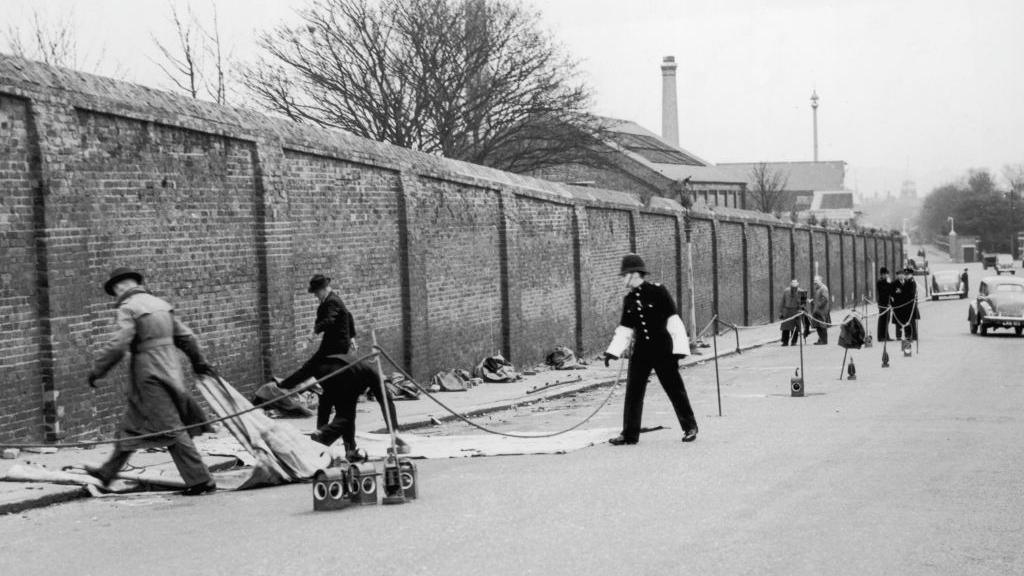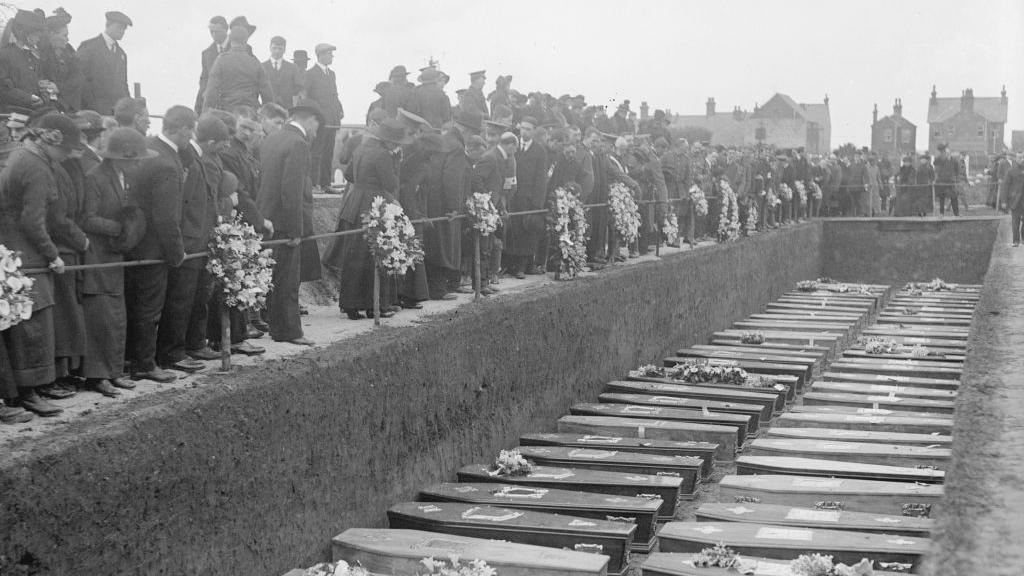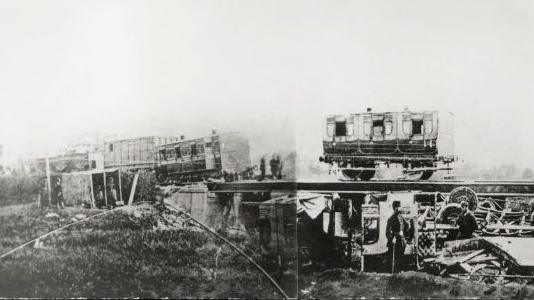The day disaster struck Medway

Everyone in the community was impacted by the tragedy, said a local historian
- Published
Just before Christmas in 1951, tragedy struck Medway.
Twenty-four children were killed and 18 others injured after being hit by a double-decker bus outside Chatham Dockyard in what was then the most deadly road accident in British history.
On the evening of 4 December, the children, all Royal Marine cadets, had been marching in military formation down Dock Road.
They were excited as they were on their way to a boxing match, local historian Pam Mills told Secret Kent.
Marching in line with the traffic, not opposed to it, the boys wore dark blue military uniforms, it was foggy, a streetlight light had failed and they did not have a red light behind them, she detailed.
That was when the bus, without its headlights on (something that was legal at the time), ploughed into the back of one column of marching children.
Driver John William George Samson "didn't realise what he'd done," said Ms Mills. "Reports show he felt like he was going over rubble."
The vehicle came to a standstill and the 57-year-old jumped out, then the "sudden realisation hit", she said.
'Everybody felt it'
Seventeen cadets, all aged between 9 and 13, died at the scene but, said Ms Mills, not all were killed by the impact and were trapped under the bus.
She said it "must have been horrific" for people there who were part of the rescue operation "and for the families, my goodness".
Ms Mills told Secret Kent the emotion in the community after the incident was "palpable".
"Everybody felt it," she added.
Disaster on Dock Road
At an inquest, the coroner ruled the crash an accident and recommended that no criminal charges be brought against Samson, a bus driver of 25 years, owing to the circumstances that night.
Despite this, police prosecuted him for dangerous driving and he was found guilty, though the jury recommended leniency.
"You could actually feel how sorry he was," said Ms Mills. "He was a local man. He knew these boys and they knew him."
"In effect, he was another victim of this tragedy. He was absolutely traumatised and he lived with it for the rest of his life."
Sampson never drove a bus again but he was kept on at the company and remained in the area for the rest of his life.
Standing in Gillingham Cemetery looking at the graves of the cadets, Ms Mills told Secret Kent any parent would look at the ages on the headstones and feel heartbroken.
"These boys, they shouldn't be forgotten," she said.
Follow BBC Kent on Facebook, external, X, external, and Instagram, external. Send your story ideas to southeasttoday@bbc.co.uk, external or WhatsApp us on 08081 002250.
Related topics
- Published31 May

- Published8 June
